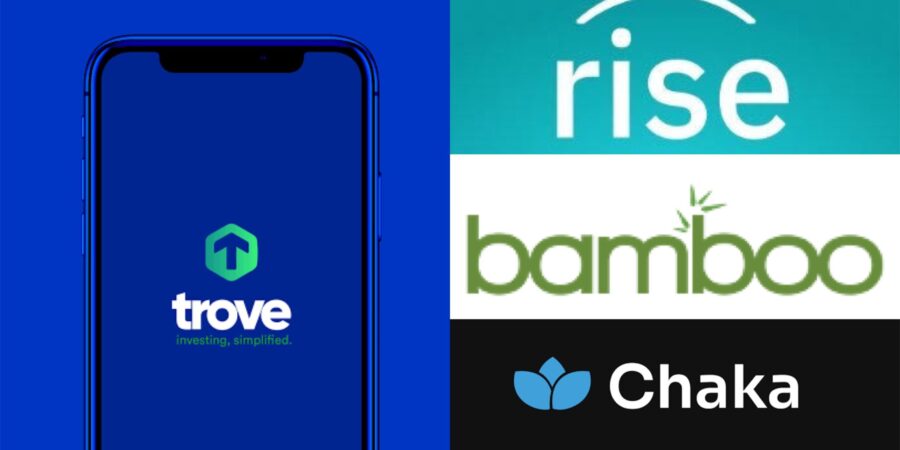So, you are a founder (or team of founders) on a mission to provide access to borderless digital investment and wealth management opportunities to individuals and businesses in Nigeria. You’ve done your market analysis and your service offering fits the description of what the foremost digital brokerage investment companies in Nigeria with the likes of Bamboo, Chaka, Risevest, etc. provide, that is; offer retail investment services in which Nigerian users are allowed to invest fractionable amounts to publicly listed companies in Nigeria and possibly around the world.
You are however uncertain about the regulatory requirements for setting up an online brokerage service in Nigeria.
In this article, we will consider the key regulatory requirements for setting up such a service in Nigeria. It is, however, important to establish the fact that the Securities and Exchange Commission (SEC) is responsible for regulating securities investment and transactions in Nigeria.
WHAT IS AN ONLINE BROKERAGE FIRM?
To define an online brokerage firm, it is important we define what or who a broker is, what an online broker is, and an online brokerage service, and then an online brokerage firm.
Meaning of a “broker”; A broker is a licensed middleman and dealing member of an exchange (either an individual or organization) that enables and facilitates buying and selling of financial assets such as stocks, bonds, mutual funds, ETFs, etc. on behalf of others.
Meaning of an “online/digital broker” is an intermediary (by way of an online platform) that lets you buy and sell financial assets (such as shares and stocks) over the internet.
The meaning of an “online brokerage service” is simply a service that enables buying and selling of financial assets online between investors and brokers.
Meaning of an “online brokerage firm” is a financial institution that enables its users/investors and licensed brokers to buy or sell financial assets respectively using online platforms such as websites and mobile apps
In most cases, digital/online platforms that offer brokerage services online, are not licensed or qualified to buy, sell or provide expert financial advice on what financial assets are to be bought or sold as that is the role of licensed brokers or dealers. To this end, the digital brokers enter into an arrangement with a licensed broker/dealer that enables the former (i.e digital broker), to facilitate the buying and selling of financial assets of these licensed broker/dealers with users of their platforms who are known as investors.
Based on the above scenario, the digital or online brokers are regarded by the Nigerian Securities and Exchange Commission as sub-brokers, and to operate as a sub-broker using online platforms in Nigeria, you are required to obtain a sub-brokers license from the Securities and Exchange Commission (SEC).
The SEC regulations define sub-brokers as “any person or entity not being a dealing member of an Exchange who acts on behalf of a sponsoring Broker/Dealer as an agent or otherwise for assisting the investors in buying, selling or dealing in securities through such sponsoring Broker/Dealer.”
There are additional cases where a sub-broker opts to enter into an arrangement with more than one broker/dealer with the aim of giving their users/investors multiple investment options to trade with. The SEC regulations refer to such a scenario as that of a “Sub-broker serving multiple brokers through a Digital Platform”. In such a scenario, the SEC provides requirements for obtaining the required sub-broker license.
WHO CAN BECOME A SUB-BROKER?
Under the SEC guidelines, an individual or a company can obtain a license from the Commission as a sub-broker.
SEC GUIDELINES FOR ONLINE BROKERAGE FIRMS IN NIGERIA
Having identified a sub-brokers license from the SEC as the primary license requirement for starting an online brokerage firm or company, we will restrict ourselves to the requirements for;
1. obtaining a sub-brokers license as a company and
2. serving multiple brokers through an online platform
REQUIREMENTS FOR OBTAINING A SUB-BROKERS LICENSE AS A COMPANY
Some of the requirements an applicant company for a sub-broker license is required to provide are as follows;
1. A copy of the certificate of incorporation certified by the Corporate Affairs Commission (CAC)
2. A copy of the memorandum and articles of association certified by the Corporate Affairs Commission
3. A copy of the return on allotment of shares and particulars of Directors certified by the Corporate Affairs Commission;
4. A copy of the latest audited accounts or audited statement of affairs for companies in operation for less than one year
5. Profile of the company
6. Fidelity bond representing 20% of paid-up capital
7. A copy of the agreement signed between the sponsoring broker/dealer firm and sub-broker (where the digital sub-broker is dealing with one licensed broker/ dealer)
8. Evidence of minimum paid-up capital of N10 million etc.
ADDITIONAL REQUIREMENTS FOR OBTAINING A SUB-BROKERS LICENSE AS A COMPANY SERVING MULTIPLE BROKERS THROUGH AN ONLINE PLATFORM
In addition to the requirements listed above, (i.e. the requirements for obtaining a sub-brokers license as a company) below are some of the additional requirements for obtaining a sub-brokers license as a company serving multiple brokers through an online platform;
1. Copy of “multiple principal agreement” with every sponsoring broker
2. Certification that the Infrastructure is sufficient to perform the required function by an IT Service Provider registered by NITDA or another recognized Agency, and endorsed by a representative of the Association of Securities Exchanges
3. Evidence of documented policies and procedures for managing technology risks.
4. Electronic Communication channel through which all communications with clients would be made.
5. Method of establishing the suitability of potential clients to utilize its infrastructure for transactions.
6. Notice to potential clients of the features, risks, responsibilities, obligations, and liabilities associated with the use of its infrastructure, etc.
As stated earlier, the requirements listed above are not exhaustive. Therefore, to find out in detail, the requirements for obtaining a sub-brokers license as either a company or a company serving multiple brokers through an online platform, please reach out to us here.
WHAT SERVICES CAN MY COMPANY PROVIDE WITH A SUB-BROKERS LICENSE?
Upon obtaining a sub-brokers license from the SEC, such a company will be able to do the following through its digital platform;
1. Buy securities
2. Sell securities
3. Receive payments from users/investors with respect to (a) and (b) above
4. Make payments to clients in connection with (a) and (b) above
5. Other services connected to or flowing from (a) to (d) above.
CAN MY DIGITAL BROKERAGE PLATFORM OFFER BUYING AND SELLING OF SECURITIES OWNED BY FOREIGN COMPANIES TO NIGERIAN INVESTORS?
The Investment and Securities Act (ISA) and the SEC regulations govern the buying and selling of securities owned by foreign companies in Nigeria. Under the ISA, only public companies (quoted or unquoted) may invite members of the Nigerian public to buy or sell their securities so long as it satisfies the requirements of Sections 73 to 87 of the Act (See Section 67 of the ISA).
Under Rule 414 of the SEC rules, “A foreign Government, or a company incorporated in a foreign country may issue, sell or offer for sale or subscription its securities to the public through the Nigerian Capital Market; such securities may be denominated in naira or any convertible foreign currency”
In other words, a foreign company can only issue its securities to the Nigerian public for sale or purchase in naira or any convertible foreign currency, through the Nigeria Capital Market and such securities must be registered with the SEC (See Rule 415).
What we can glean from the combined interpretation of the above legal provisions is that digital sub-brokers in the likes of Bamboo, Chaka, etc., may issue, sell, offer to issue, and sell to the Nigerian public, foreign securities so long as such securities are listed on any exchange registered in Nigeria and registered with the SEC except the latter grants such foreign company or securities an exemption as it is empowered by the SEC rules to do.
Local securities, listed on the Nigerian Exchange can also be traded on licensed digital brokerage platforms in Nigeria.
How about digital investment platforms in partnership with licensed Capital Market Operators in Nigeria, who facilitate direct buying and selling of foreign securities to Nigerians?
The SEC in its response to this, has expressly re-affirmed the position that only foreign securities listed on any Exchange registered in Nigeria may be issued, sold, or offered for sale or subscription to the Nigerian public. There is however currently no license requirement for this category of service providers as of the time of publishing this article.
CONCLUSION
The invest-tech space is an evolving sector for regulators, and as founders in this space continue to creatively evolve their service offerings to members of the public, the relevant regulators will continue to develop regulations to meet up with such trends.
It is however strongly recommended that founders already in this space as well as founders (both local and foreign) considering venturing into this space within Nigeria, should make deliberate efforts to monitor the policies of regulators so as to avoid being caught unawares with developments by regulators.
Apart from satisfying the licensing requirements for setting up a digital/online brokerage firm in Nigeria, there are other legal considerations that founders venturing into this space must take note of such as; data protection and compliance, user policies, intellectual property protection, meeting and complying with KYC requirements, etc.
If you will like to have detailed guidance on the legal considerations for setting up a digital brokerage firm in Nigeria, either as a local or a foreigner, you may reach out to us here or through the Whatsapp icon on the lower right part of this page, and we will be delighted to speak with you.




Leave a Reply